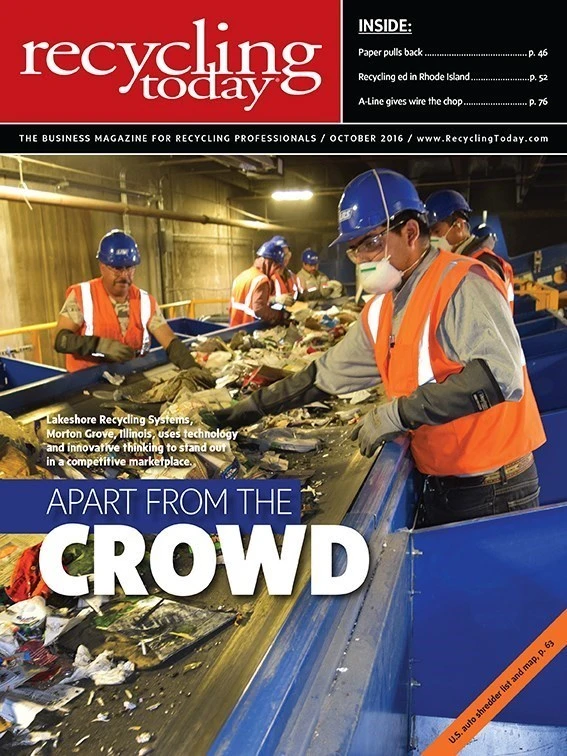Demand for recycled polyethylene (PE) appears to have picked up as September draws to a close, according to sources, though a reprocessor based in the Southeast says she thinks the increase is temporary.
“Demand for PE is high,” the reprocessor says. “I think it is seasonal, however.”

Prime and off-spec PE pricing also increased in the month of September. According to Chicago-based The Plastics Exchange LLC (TPE), a marketplace for anonymously buying and selling prime and off-spec commodity grade resins, spot trading of a variety of PE commodity grades improved in mid-September. “After a slow start to the month,” TPE reports in its market update dated Sept. 16, 2016, “PE buyers become a little more aggressive as they have been actively working down relative well-priced August material.”
TPE reports that spot prices for prime and off-spec PE rose 5 cents per pound in September.
“PP (polypropylene) demand is about the same,” the reprocessor says of recycled material. “I think some people are trying to prebuy at today’s pricing to offset anticipated increases.”
A price increase averaging 4 cents per pound for prime and off-spec PP was pending as of mid-September, according to TPE.
The reprocessor says export activity to Asia appears to be increasing. However, she adds, “I am waiting to see if the bankruptcy of Hanjin will affect exports.”
She’s referring to the Korean container shipping line, which filed for chapter 15 bankruptcy protection in the U.S. Sept. 3 in an effort to protect its vessels from being seized by creditors. Chapter 15 is the section of the U.S. bankruptcy code that deals with international insolvency matters. Hanjin initially sought bankruptcy protection in South Korea Aug. 31.
Domestic over-the-road transportation of recycled plastics also could be negatively affected in the short term by a pipeline leak in Shelby County, Alabama, the reprocessor says, which could lead to fuel shortages along the eastern seaboard. “There are some gas stations in Georgia that have run out of fuel,” she says, adding that the pipeline serves 11 states.
According to a report from Alabama Media Group, Colonial Pipeline’s Line 1, an underground pipeline 3 feet in diameter that normally carries 1.3 million barrels of gasoline daily from refineries in Houston to distribution centers across the Southeast and along the eastern seaboard, was found to be leaking Sept. 9. The line is estimated to supply the East Coast with up to 40 percent of its gasoline.
Gas stations in Alabama and Tennessee have reported outages of some or all grades of gasoline, Alabama Media Group reports, and governors of six states have declared states of emergency, allowing truck drivers to work longer shifts to prevent gasoline shortages.
Alternate pipelines are being used to transport gasoline, which also is being shipped by tanker ship from Houston to New York.
Colonial has said it will build a temporary pipeline to bypass the spill site in an effort to restore the flow of gasoline, the Alabama Media Group reports.
Get curated news on YOUR industry.
Enter your email to receive our newsletters.
Explore the October 2016 Issue
Check out more from this issue and find your next story to read.
Latest from Recycling Today
- Call2Recycle Canada launches program in Alberta
- The history of SAS Forks: Celebrating 50 years
- SAS Forks partners with NED at Green Recycling in Houston, Texas
- DRKhorse’s RCC series at Gorick Construction in Endicott, New York
- Balar Equipment to operate under Enviro-Clean Equipment name
- Li-Cycle reports 2024 financials
- Wisconsin Aluminum Foundry acquires Anderson Global
- PureCycle, Landbell Group working to advance PP recycling in Europe






